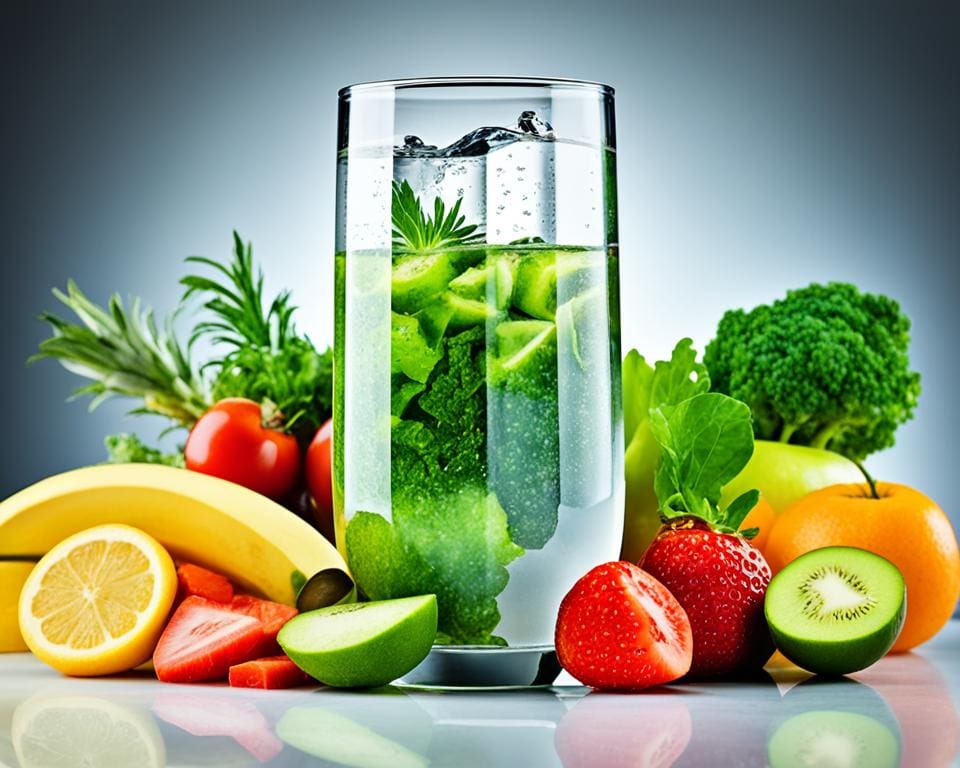A low-sodium diet can greatly improve your health. Sodium is vital for our bodies, but too much can cause problems. Cutting back on salt helps control blood pressure and reduces heart disease risk.
Lower sodium intake can also aid in weight management. It enhances kidney function and promotes better hydration. These benefits make a low-sodium diet a smart choice for many people.
Doctors often suggest this diet for specific health conditions. It’s helpful for those with kidney disease, high blood pressure, or heart failure. The goal is usually to eat less than 2-3 grams of sodium daily.
A low-sodium diet isn’t just about health benefits. It can also lead to more creative cooking. You’ll discover new ways to enhance flavors without relying on salt.
What Is a Low-Sodium Diet?
Sodium is vital for our body’s functions. It helps with cell work, fluid balance, and blood pressure. But too much sodium can cause health problems. A low-sodium diet limits high-sodium foods and drinks.
Defining a Low-Sodium Diet
A low-sodium diet means eating less than 2,000 milligrams of sodium daily. This limit is set by health experts. It helps prevent various health issues.
To follow this diet, eat fresh, whole foods. Choose fruits, veggies, and lean proteins. Avoid processed, packaged, and canned foods, which often contain high sodium.
Why Sodium Intake Is Regulated
Our body controls sodium levels through a complex system. This includes the kidneys, hormones, and other body processes. Too much sodium can upset fluid balance.
High sodium intake may lead to high blood pressure. This increases the risk of heart disease, stroke, and kidney problems. Balancing sodium intake is key for good health.
A low-sodium diet offers many health perks. It can lower blood pressure, reduce heart disease risk, and boost heart health. By cutting sodium, you can actively manage your health.

“Sodium reduction is one of the most cost-effective methods to improve health and reduce non-communicable diseases’ burden, avert cardiovascular events, and save costs.”
Why Are Low-Sodium Diets Prescribed?
Low-sodium diets help people with certain health conditions. They can offer important benefits by reducing sodium intake. Let’s look at why these diets are recommended for kidney disease, high blood pressure, and heart disease.
For Kidney Disease
People with kidney disease often can’t remove excess sodium or fluid from their body. This raises blood pressure and damages kidneys further. The National Kidney Foundation suggests limiting sodium to less than 2,000 mg daily for chronic kidney disease patients.
For High Blood Pressure
High-sodium diets are linked to high blood pressure. Studies show that cutting salt intake can lower blood pressure. Reducing sodium from 4000 to 2000 mg daily can decrease blood pressure by 2 to 3 mmHg.
For Heart Disease
Low-sodium diets are crucial for people with heart conditions, including heart failure. Too much sodium can cause dangerous fluid buildup in the body. Limiting sodium helps prevent fluid collection in legs and abdomen.
A low-sodium diet can greatly benefit those with these health issues. It helps manage symptoms, prevent complications, and improve overall health. This diet is a key part of a complete treatment plan.
Benefits of a Low-Sodium Diet
A low-sodium diet offers many health perks. It can lower blood pressure, even for those with normal levels. Studies show that cutting salt intake for a month or more can have positive effects.
A review of 34 studies found that reducing salt led to blood pressure drops. This was true for people with both high and normal blood pressure.
May Reduce Blood Pressure
Low-sodium diets are linked to lower blood pressure. This is great for people with high blood pressure. Eating less salt can help manage and lower elevated blood pressure.
By reducing sodium, you can lower your risk of heart problems. This is especially helpful for those with hypertension.
May Help Decrease Cancer Risk
High-sodium diets may increase the risk of certain cancers, like stomach cancer. Too much sodium can harm the stomach lining and cause inflammation.
It can also lead to the growth of harmful bacteria. A diet low in processed foods and high in fruits and veggies may lower stomach cancer risk.









